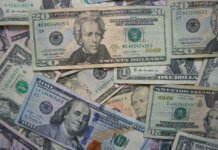 Economist Lawrence B. Lindsey is warning that the Federal Reserve is ‘buying the entire deficit’ through its quantitative easing policies, adding that this could create a huge risk in the event of another financial crisis.
Economist Lawrence B. Lindsey is warning that the Federal Reserve is ‘buying the entire deficit’ through its quantitative easing policies, adding that this could create a huge risk in the event of another financial crisis.
In an interview on CNBC's ‘Squawk Box,’ Lindsey, who served as director of the National Economic Council and as an economic advisor to President George W. Bush, argues that the Fed's decision to purchase up to $40 billion a month in mortgage debt could be construed as a political decision rather than a fiscal one.
‘The Fed, maybe because it can't do otherwise, has told the Congress: 'We're going to buy your bonds no matter what,'’ Lindsey says. ‘I think that's keeping the pressure off the president, off the Congress. ‘The effect of QE3 on interest rates may also keep Congress from reining in borrowing.
‘If the (Fed) chairman's estimates of the effectiveness of QE3 on interest rates come true,’ he continues, ‘we're going to be down to an average cost of borrowing for the government of 0.6 of a percentage point. Why would any Congress not borrow and spend if they could borrow at 60 basis points?’
Lindsey, who runs his own consulting firm while serving as an adjunct scholar with the American Enterprise Institute, warns that the Fed's actions will leave the nation vulnerable if the economy stalls or reverses.
‘I have no problem doing extraordinary things in extraordinary times,’ he continues. ‘If this becomes the new ordinary, it's hard to imagine the Fed's maneuvering room [in a crisis].’










